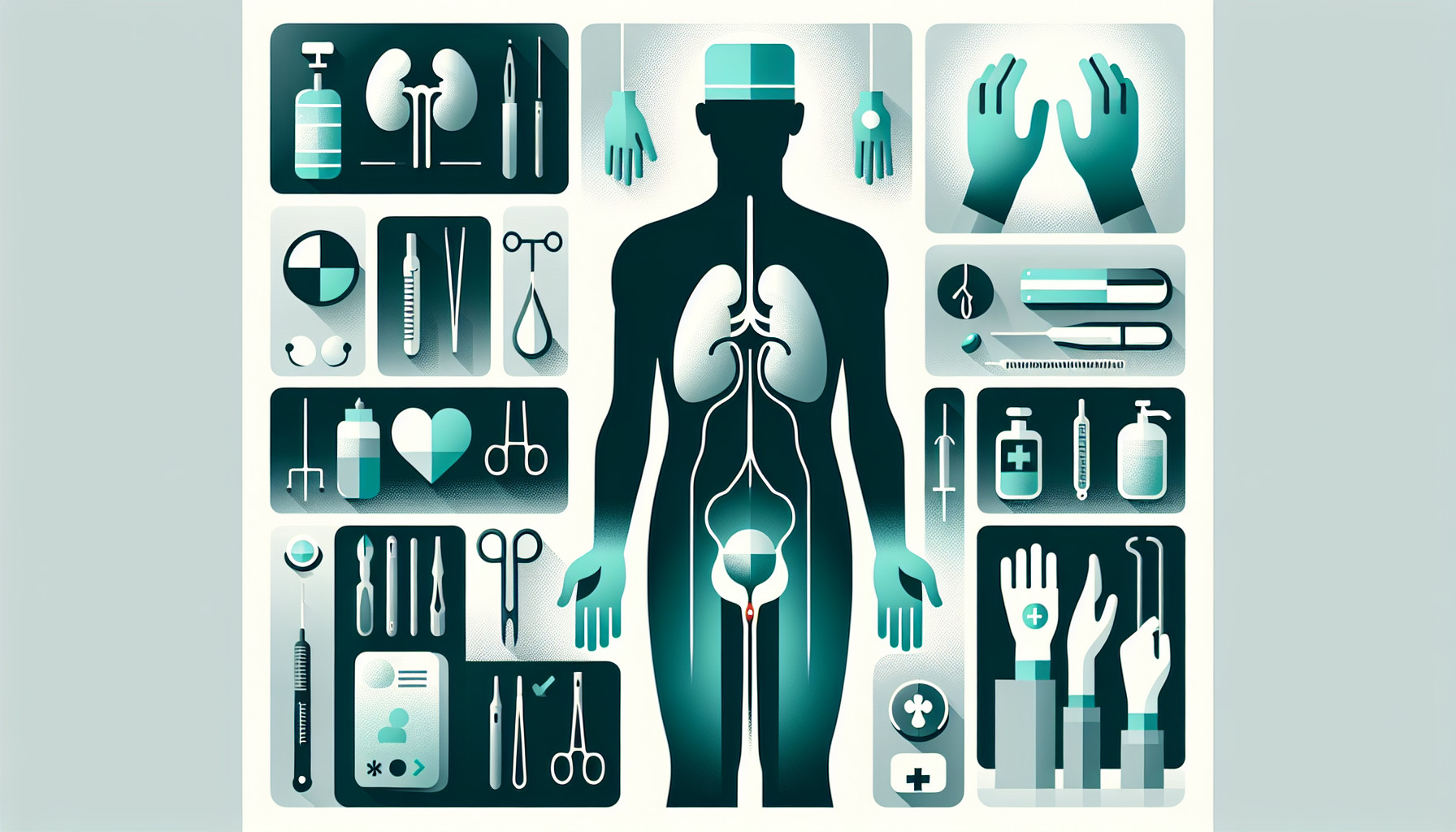Our Summary
This research paper looks into the reasons and complications of kidney removal surgeries that are done after a commercial kidney transplant. The data collected is from a hospital in Oman from 2009 to 2017. Out of 403 patients who received a kidney transplant, 34 had to have the kidney removed later. The reasons for removing the kidney early (within 10 weeks of the transplant) were severe bleeding, kidney failure, or a pus-filled kidney. For those who had the kidney removed later (more than 10 weeks after the transplant), the reasons were pain, bloody urine, fever, high blood pressure, and infection. Some patients experienced heavy blood loss, and those who had a type of blood vessel issue (pseudoaneurysm) also showed signs of a fungal infection. After the surgery, 26 patients experienced complications. Three patients had severe bleeding from a particular artery, which had to be tied off. Twelve patients had serious wound infections, and three patients died from severe, body-wide infections and a blood clotting disorder. The study concludes that commercial kidney transplants have a high risk of complications related to the immune system, blood vessels, and infections, leading to serious health issues and death.
FAQs
- What were the common reasons for kidney removal after a commercial kidney transplant?
- What complications did patients experience after kidney removal surgery?
- What conclusions did the study draw about the risks associated with commercial kidney transplants?
Doctor’s Tip
A doctor might advise a patient undergoing a nephrectomy to closely follow their post-operative care instructions to reduce the risk of complications. This may include taking prescribed medications as directed, keeping the surgical site clean and dry, avoiding strenuous activity, and attending follow-up appointments with their healthcare provider. It is also important for the patient to report any concerning symptoms, such as severe pain, fever, or signs of infection, to their doctor promptly.
Suitable For
Patients who are typically recommended for nephrectomy include those who have complications following a kidney transplant, such as severe bleeding, kidney failure, pus-filled kidney, pain, bloody urine, fever, high blood pressure, infection, and other issues related to the immune system, blood vessels, and infections. These complications can lead to serious health issues and even death if not addressed promptly.
Timeline
- Before nephrectomy:
- Patient receives a kidney transplant from a commercial source.
- Patient may experience symptoms such as severe bleeding, kidney failure, pus-filled kidney, pain, bloody urine, fever, high blood pressure, and infection.
- If complications arise, patient may undergo nephrectomy within 10 weeks of the transplant or later.
- After nephrectomy:
- Patient undergoes nephrectomy surgery to remove the transplanted kidney.
- Post-surgery, patient may experience complications such as severe bleeding, wound infections, and body-wide infections.
- Some patients may require further interventions such as tying off a particular artery to stop bleeding.
- In severe cases, patients may die from complications such as body-wide infections and blood clotting disorders.
- Overall, patients who undergo nephrectomy after a commercial kidney transplant face a high risk of complications and serious health issues.
What to Ask Your Doctor
- What are the potential risks and complications associated with nephrectomy?
- How long is the recovery period after nephrectomy?
- Will I need to make any lifestyle changes after the surgery?
- What is the success rate of nephrectomy in treating my condition?
- Are there any alternative treatment options to nephrectomy that I should consider?
- What is the likelihood of the kidney transplant failing and requiring removal in the future?
- How will nephrectomy affect my overall kidney function and health in the long term?
- Will I need to take any medications or undergo any additional treatments after nephrectomy?
- What is the experience of the surgical team in performing nephrectomy procedures?
- Are there any specific precautions or steps I should take to prevent complications after nephrectomy?
Reference
Authors: Lala S, Sedky M, Alozeni A, George K, Al Ismaili F, Metry AM, Al Salmi I. Journal: Saudi J Kidney Dis Transpl. 2022 Aug;33(Supplement):S138-S146. doi: 10.4103/1319-2442.384186. PMID: 37675744
